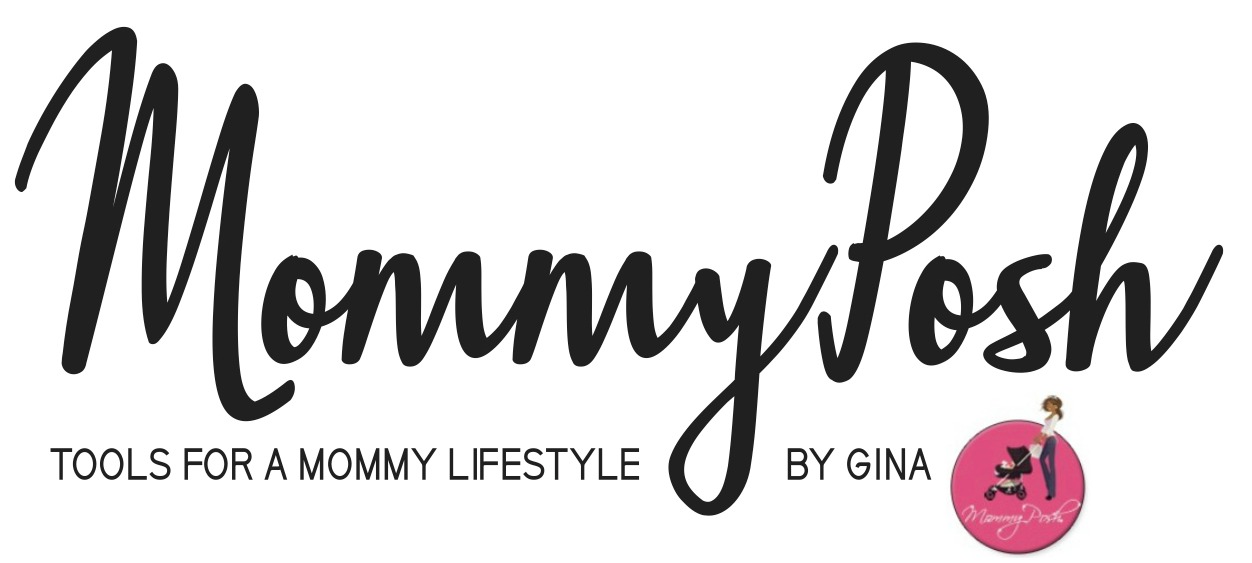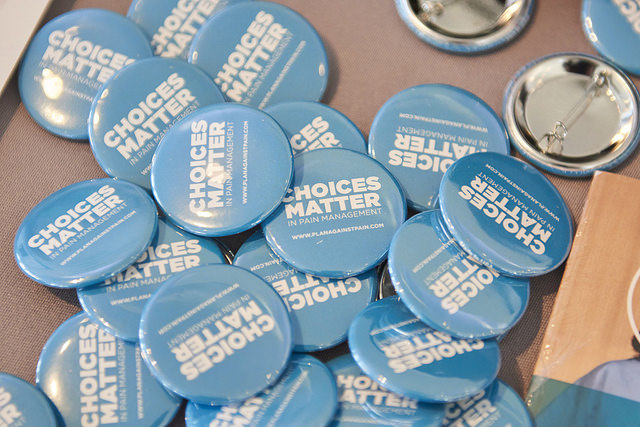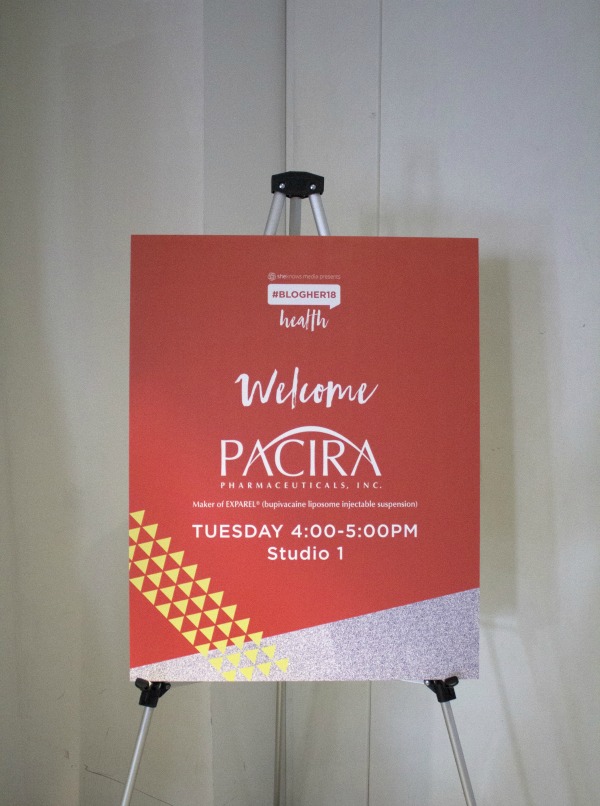
*This post is brought to you by Pacira and SheKnows Media. All opinions are my own. *
A NEW ALTERNATIVE FOR AN OPIOID FREE PAINKILLER
BlogHer18 Health kicked off with a panel discussion titled, “The Operating Room: A Gateway to the Opioid Epidemic” on the necessity of having an open dialogue between you, the patient, and your doctor.
Do you remember your hospital stay during your birthing experience? Like me, did you have an elective C-section? What pain meds did you take? While positivity is the key to a smooth recovery, it was disturbing to know I was less than 25% of the population who did not ask THE number one question…. and it’s all about pain management. So, thanks to Pacira Pharmaceuticals let me share some common mistakes we as women, mothers, and caregivers should not avoid asking our doctors/surgeons prior to surgery and the importance of effective non-opioid options.
You see, not enough patients talk to their doctors about non-opioids post-surgery. While we treat our doctors/surgeons as the #1 experts and ensure that they would not prescribe harmful or non-addictive medications, we learn that we should not be all that sure. In recent years, an opioid epidemic has taken swaths of the country by storm. Nearly 1 in 15 patients become dependent following surgery. Though no region in the country has been immune, rural and tribal committees have seen especially high levels of devastation. So why are less than a quarter of patients discussing non-opioid options with surgeons? By raising awareness and employing non-opioid strategies in our pain management protocols, we can help diminish the risk of opioid misuse or abuse among us as patients. So, let me share.
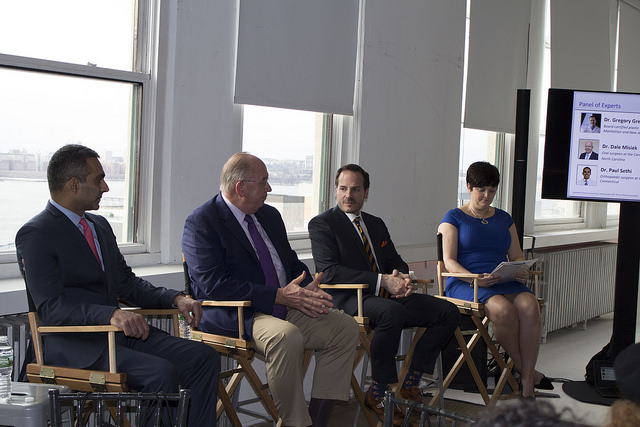 Right to Left: Moderator, Shannon Hartley with the Panel of Experts: Dr. Gregory Greco, Dr. Dale Misiek and Dr. Paul Sethi discussion on non-opioid options in NYC.
Right to Left: Moderator, Shannon Hartley with the Panel of Experts: Dr. Gregory Greco, Dr. Dale Misiek and Dr. Paul Sethi discussion on non-opioid options in NYC.
The key is to improve relationships and communication between staff and surgeons, Dr. Greco said. “We have to educate our colleagues about the relationships between many of the complications we have and long-term health in women.”
Learning that C-sections is a common inpatient surgery with the most use of opioids, was disturbing. Opioid drugs your doctor may offer for post-Cesarean pain include:
• Hydrocodone (Vicodin)
• Oxycodone (OxyContin, Percocet)
• Codeine
• Fentanyl
This is yet another opportunity for misuse to women and mothers. Did you know that women receive twice as many opioid prescriptions as men? According to a recent report, 13% of middle age women use opioids three to six months after surgery, placing them at risk for dependence and misuse. And all while nursing their newborn, mothers in turn pass opioids to their newborn which has adverse effects on a child’s early development and long-term outcomes. With an estimated 3 million surgery patients becoming long-term opioid users, Pacira hopes to educate women on the importance of effective non-opioid options which can manage postsurgical pain and decrease the number of opioids prescribed after common procedures, i.e. wisdom tooth extraction, common orthopedic procedures and plastic surgery.
So, start today and become your own advocate for learning about the side effects of medication prescribed and ask about non-opioids.
Ask today about EXPAREL® (bupivacaine liposome injectable suspension), introduced in 2011, this is a long-acting numbing medication injected during surgery that can control pain and limit the need for any opioids following surgery. Following surgery, patients typically can alternate only with acetaminophen and ibuprofen for a few days to treat any discomfort. Using non-opioid options also eliminates the risk of unpleasant side effects that often go hand-in-hand with opioid use, such as nausea, constipation, and vomiting, enabling new mothers to recover quicker.
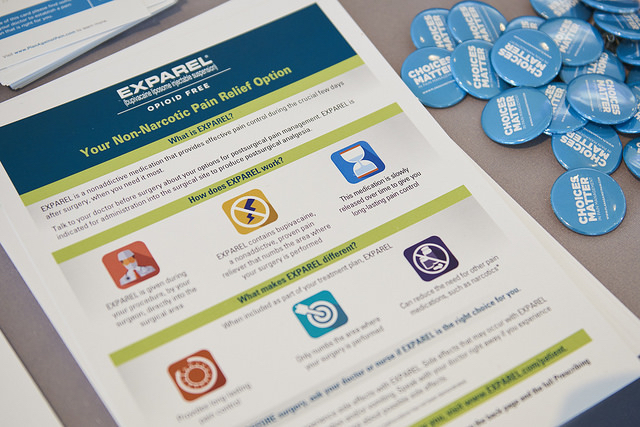
Look, I get it, pain is different for everyone, but women should feel empowered to have these types of conversations with their physicians before delivery. “There are no stupid questions,” says Dr. Sethi.
So, you’re doing your spring cleaning, and your next focus area is in your medicine cabinet. You’ve found multiple pill bottles with long gone expiration dates, and you’re not sure how you can responsibly dispose of all of these pills.
Here are three ways to properly discard your medication:
• Ask your local police department
• Walmart recently partnered with SMARTxDisposal to educate customers about the proper way to dispose of unused prescription drugs
• And simply “Google It,” says Dr. Sethi.
